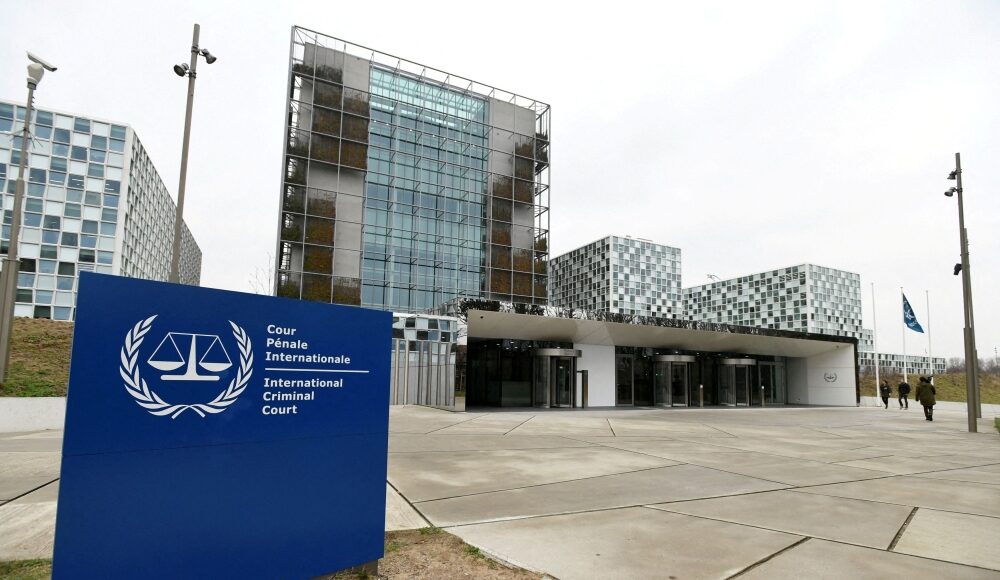JUNE 11 — It’s always the same playbook. When justice starts sniffing too close to the men with blood under their fingernails, they don’t argue facts. They don’t invite transparency. They threaten. They bully. They pick up the phone and speak slowly, like they’re doing you a favour by not tearing the whole thing down. And that’s exactly what David Cameron did.
The former Prime Minister—Britain’s once-chosen steward of democracy and human rights—called the chief prosecutor of the International Criminal Court and told him that holding Israeli leaders accountable for alleged war crimes would be like “dropping a hydrogen bomb.” Let that sink in. Not a court ruling. Not a verdict. A bomb. This wasn’t diplomacy. This was a warning shot dressed up in a suit and tie.
What Cameron said wasn’t just inappropriate—it was an act of sabotage. A deliberate attempt to undermine the last scraps of credibility that international law still clings to. Because if the ICC can’t investigate crimes when the accused are politically powerful or deemed “friends” of the West, then what’s the point of any of it? Why have a court at all if the people who need to be judged the most are immune?
There is a deeper sickness here. A double standard so naked, it burns. When the ICC issued an arrest warrant for Vladimir Putin, the Western world applauded. Justice, finally. Accountability, finally. But when the same court looked toward Tel Aviv, everything changed. Suddenly, the court became “unhelpful,” “biased,” “a threat to peace.” The same nations that trumpet the rule of law from their podiums at the UN started hurling stones at the very institution they once helped build.
You cannot cherry-pick justice. You cannot hold it high when it suits you, and gut it when it challenges your allies. That isn’t justice—it’s empire in drag. It’s colonialism wrapped in legalese. And it’s killing any hope that the law can protect the weak from the strong.
The story doesn’t end with Cameron. He was just the loudest voice on the line. Across the Atlantic, American lawmakers have been snarling too. Threats of sanctions, visa bans, financial strangulation—all aimed at shutting down an investigation into Israeli actions in Gaza. And behind the scenes, there are reports of intimidation, surveillance, even smear campaigns against court officials. A full-scale assault, not just on the investigation, but on the very idea that no one is above the law.
The International Criminal Court building is seen in The Hague, Netherlands, January 16, 2019. — Reuters pic
It should chill us to the bone. Because once justice becomes conditional—once we allow politics to decide who gets prosecuted and who doesn’t—we are no longer in a world of law. We are back in the jungle, clawing and snarling, where might is right and innocence is irrelevant.
And still, amid this storm, one man stood his ground. Karim Khan, the British prosecutor at the ICC, didn’t back down. He didn’t cave. He didn’t roll over for the threats of former prime ministers or the pressure of global superpowers. He just said, calmly: “I don’t like being threatened.” In that moment, something rare happened. A flicker of integrity, flickering stubbornly in the dark.
But flickers don’t last forever. They need fuel. They need public outrage. They need people to care.
Because if we let this go—if we let the Camerons of the world silence investigations with threats and handshakes—then we are saying, loud and clear, that war crimes only matter when poor men commit them. That starving civilians, bombing hospitals, or reducing entire neighbourhoods to ash is forgivable, so long as the pilot’s accent is Western and the missiles are paid for in dollars or sterling.
We cannot let this stand. If international law means anything, it must mean something when it’s hard. It must mean something when the accused are rich, powerful, and uncomfortably close. Otherwise, it’s just theatre. And we’ve all seen enough performances.
What Cameron did was not a slip. It was not a moment of poor judgment. It was a deliberate act to protect power from accountability. And we must call it what it is: an assault on justice.
Because the moment we start excusing the inexcusable, the moment we let politics decide who gets to face the scales and who walks free—we lose something essential. Not just as nations. Not just as institutions. But as human beings.
We lose our claim to conscience.
* This is the personal opinion of the writer or publication and does not necessarily represent the views of Malay Mail.





